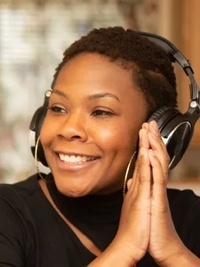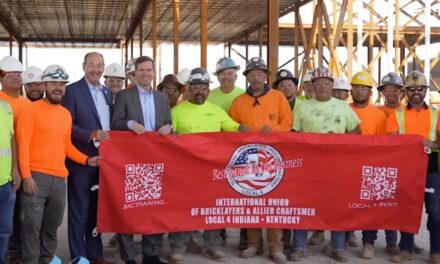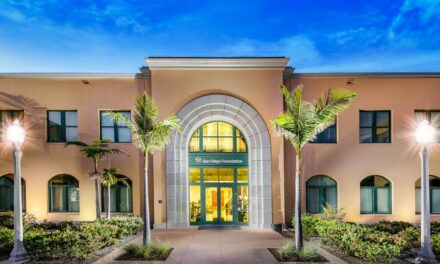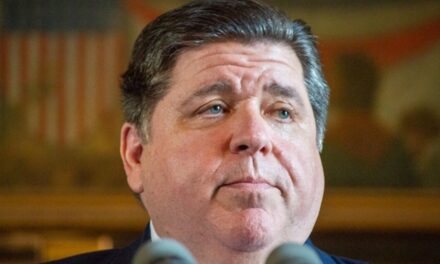
This transcript from the “Silence in Sikeston” podcast series produced by Cara Anthony, shared in two parts. If you are able, we encourage you to listen to the audio of “Silence in Sikeston,” which includes emotion and emphasis not found in the transcript. This transcript, generated using transcription software, has been edited for style and clarity.
 Cara Anthony
Cara Anthony
Cara Anthony: It’s well documented: Black Americans are more likely than our white peers to be perceived as dangerous by police. Dr. Gail Christopher has spent her long career trying to address the causes of institutional racism. Dr. Christopher thinks a lot about the connections between race and health. And she’s executive director of the National Collaborative for Health Equity. Her nonprofit designs strategies for social change. She says the way to think about starting to fix structural racism … is to think about the future.
Cara Anthony: Is there a cure for racism? And I know it’s not that simple, but is there a cure?
Gail Christopher: I love the question, right? And my answer to you would be yes. It is a process, and it’s not enough to march and get a victory. We have to transform the systems of inequity in this country.
Cara Anthony: And Dr. Christopher says it is possible. Because racism is a belief system.
Gail Christopher: There is a methodology that’s grounded in psychological research and social science for altering our beliefs and subsequently altering our behaviors that are driven by those beliefs.
Cara Anthony: To get there, she says, institutions need a rigorous commitment to look closely at what they are doing — and the outcomes they’re creating.
Gail Christopher: Data tracking and monitoring and being accountable for what’s going on. We can’t solve a problem if we don’t admit that it exists.
Cara Anthony: One of her favorite examples of what it looks like to make a start toward systemic change comes from the health care world. I know we’ve been talking about policing so far, but — bear with me here — we’re going to pivot to another way institutional bias kills people. A few years ago, a team of researchers at the Brigham and Women’s Hospital in Boston reviewed admission records for patients with heart failure. They found that Black and Latinx people were less likely than white patients to be admitted to specialized cardiology units.
Gail Christopher: Without calling people racist, they saw the absolute data that showed that, wait a minute, we’re sending the white people to get the specialty care and we’re not sending the people of color.
Cara Anthony: So, Brigham and Women’s launched a pilot program. When a doctor requests a bed for a Black or Latinx patient with heart failure, the computer system notifies them that, historically, Black and Latinx patients haven’t had equal access to specialty care. The computer system then recommends the patient be admitted to the cardiology unit. It’s still up to the doctor to actually do that.
The hard data’s not published yet, but we checked in with the hospital, and they say the program seems to be making a difference.
Gail Christopher: It starts with leadership. Someone in that system has the authority and makes the decision to hold themselves accountable for new results.
Cara Anthony: OK, so it could be working at a hospital. Let’s shift back to policing now.
Gail Christopher: There should be an accountability board in that community, a citizens’ accountability board, where they are setting measurable and achievable goals and they are holding that police department accountable for achieving those goals.
Cara Anthony: But, like, do Black people have to participate in this? Because we’re tired.
Gail Christopher: Listen, do I know that we’re tired! Am I tired? After 50 years? Uh, I think that there is work that all people have to do. This business of learning to see ourselves in one another, to be fully human — it’s all of our work. Now, does that preclude checking out at times and taking care of yourself? I can’t tell you how many people my age who are no longer alive today, who were my colleagues and friends in the movement. But they died prematurely because of this lack of permission to take care of ourselves.
Cara Anthony: Rest when you need to, she says, but keep going.
Gail Christopher: We have to do that because it is our injury. It is our pain. And I think we have the stamina and the desire to see it change.
Cara Anthony: Yep. Heard. It’s all of our work. Dr. Christopher has me thinking about all the Black people in Sikeston who aren’t sitting around waiting for someone else to change the institutions that are hurting them. People protested when Denzel Taylor was killed even with all the pressure to stay quiet about it.
Protesters: Justice for Denzel, on 3. 1, 2, 3 … Justice for Denzel! Again! 1, 2, 3 … Justice for Denzel!
Cara Anthony: And I’m thinking about the people who were living in the Sunset neighborhood of Sikeston in 1942 when Cleo Wright was lynched.
Harry Howard: They picked up rocks and bricks and crowbars and just anything to protect our community.
Cara Anthony: And Sunset did not burn. After nearly 80 years of mostly staying quiet about Cleo’s lynching, Sikeston residents organized a service to mark what happened to him — and their community.
Reverend: We are so honored and humbled to be the host church this evening for the remembrance and reconciliation service of Mr. Cleo Wright.
Pershard Owens: [Singing] It’s been a long, long time coming, but I know a change gonna come, oh yes it will. It’s been too hard a-livin but I’m afraid to die and I don’t know what’s up next, beyond the sky …
Cara Anthony: I want to introduce you to that guy who was just singing then. His name is Pershard Owens.
Remember Rosemary Owens [from Part One]? The woman who told us about someone calling the police on her son and nephew when they were playing with their parents’ new cars? Pershard is Rosemary’s younger son.
Pershard Owens: Yeah, I definitely remember that.
Cara Anthony: Even after all this time, other people didn’t want to talk to us about it. We couldn’t find news coverage of the incident. But Pershard remembers. He was in his weekly karate practice when it happened. He was 10 or 11 years old.
Pershard Owens: My brother and cousin were, like, they were teens. So what do you think people are going to feel about the police when they do that, no questions asked, just guns drawn?
Cara Anthony: Pershard’s dad works as a police officer on a different police force in the Bootheel. Pershard knows police. But that didn’t make it any less scary for him.
Pershard Owens: You know, my parents still had to sit us down and talk and be like, “Hey, this is, that’s not OK, but you can’t, you can’t be a victim. You can’t be upset.” That’s how I was taught. So we acknowledge the past. But we don’t, we don’t stay down.
Cara Anthony: So years later, when Chief James McMillen started a program as a more formal way for people in Sikeston and the police to build better relationships, Pershard signed up. They started meeting in 2020. The group is called Police and Community Together, or PACT for short.
Pershard Owens: It was a little tense that first couple of meetings because nobody knew what it was going to be.
Cara Anthony: This was only five months after Sikeston police killed Denzel Taylor. PACT is not a citizens’ accountability board. The police don’t have to answer to it. The committee met every month. For a while. But they haven’t met in over a year now.
Pershard Owens: We would have steps forward and then we would have three steps back.
Cara Anthony: People have different accounts for why that is. Busy schedules. Mutual suspicion. Other things police officers have done that shook the trust of Black residents in Sikeston.
Pershard Owens: And people were like, bro, like, how can you work with these people? The community is like, I can’t fully get behind it because I know what you did to my little cousin and them. Like, I know what the department did back in, you know, 15 years ago, and it’s hard to get past that. So, I mean, I’m getting both sides, like, constantly, and listen, that is, that is tough.
Cara Anthony: But Pershard says something important changed because he started working with PACT.
Pershard Owens: Chief did not like me at first [Pershard laughs]. He did not. Chief didn’t … me and Chief did not see eye to eye. Because he had heard things about me and he — people had told him that I was, I was anti-police and hated police officers, and he came in with a defense up. So, it took a minute for me and him to, like, start seeing each other in a different way. But it all happened when we sat down and had a conversation.
Cara Anthony: Just have a conversation. It sounds so simple; you’re probably rolling your eyes right now hearing it. But Pershard says … it could be meaningful.
Pershard Owens: I truly want and believe that we can be together and we can work together and we can have a positive relationship where you see police and y’all dap each other up and y’all legit mean it. I think that can happen, but a lot of people have to change their mindsets.
Cara Anthony: That’s a challenge Pershard is offering to police AND community members: Have a conversation with someone different from you. See if that changes the way you think about the person you’re talking to. See if it changes your beliefs. The more people do that, the more systems can change.
Pershard Owens: We got to look in the mirror and say, “Am I doing what I can to try and change the dynamic of Sikeston, even if it does hurt?”
Cara Anthony: Pershard says he’s going to keep putting himself out there. He ran for City Council in 2021. And even though he lost, he says he doesn’t regret it.
Pershard Owens: When you’re dealing with a place like Sikeston, it’s not going to change overnight.
Cara Anthony: And he’s glad he worked with PACT. Even if the community dialogue has fizzled for now, he’s pleased with the new relationship he built with Chief McMillen. And all of this has broadened his view of what kind of change is possible.
Pershard Owens: If you want something that has never been done, you have to go places that you’ve never been.
Cara Anthony: Places that you’ve never been … stories that you’ve never told out loud … maybe all of that helps build a Sikeston where Black residents can feel safer. Where Black people can live healthier lives. A world you might not be able to imagine yet, but one that could exist for the next generation.
Cara Anthony: Thanks for listening to “Silence in Sikeston.” Next, go watch the documentary — it’s a joint production from Retro Report and KFF Health News, presented in partnership with WORLD. Subscribe to WORLD Channel on YouTube. That’s where you can find the film “Silence in Sikeston,” a Local, USA special.
If you made it this far, thank you. Let me know how you’re feeling.
I’d love to hear more about the conversations this podcast has sparked in your life. Leave us a voicemail at (202) 654-1366.
And thanks to everyone in Sikeston for sharing your stories with us.
Cara Anthony is an Edward R. Murrow and National Association of Black Journalists award-winning reporter from East St. Louis, Illinois. Her work has appeared in The New York Times, Time magazine, NPR, and other outlets nationwide. Her reporting trip to the Missouri Bootheel in August 2020 launched the “Silence in Sikeston” project.
Post Contributor
The Pagosa Daily Post welcomes submissions, photos, letters and videos from people who love Pagosa Springs, Colorado. Call 970-903-2673 or email pagosadailypost@gmail.com




